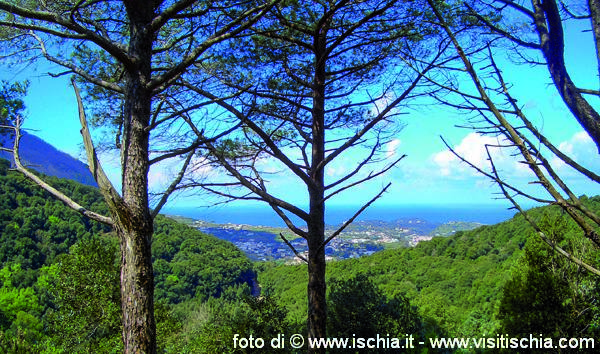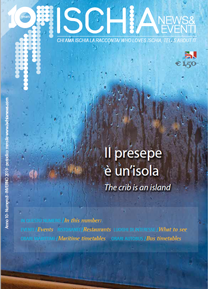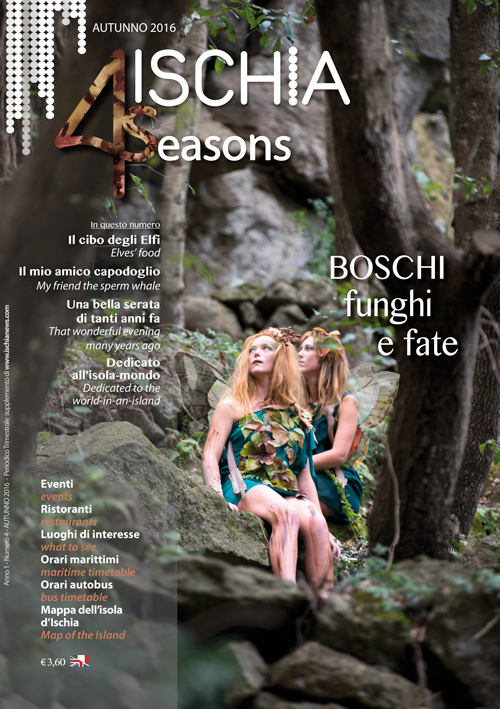Love it to recount

Planting trees, taking care for them, preventing them from being cut or destroyed by fire: a concrete and positive environmental commitment as to separate and recycle waste or to limit the pollution of air and water. Yet it is often seen as a form of sentimentality, the defense of beautiful but useless “things”. Too often, it is said, like Brecht, that these times are too hard to think about the trees. But is it true? Let’s see.
Here is why the trees
Every time I write about trees, I remember a poem by Brecht:
“What kind of times are these, when
A conversation about trees is almost a crime
Because it implies silence about so many atrocities!”
Planting trees, taking care for them, preventing them from being cut or destroyed by fire: a concrete and positive environmental commitment as to separate and recycle waste or to limit the pollution of air and water. Yet it is often seen as a form of sentimentality, the defense of beautiful but useless “things”. Too often, it is said, like Brecht, that these times are too hard to think about the trees. But is it true? Let’s see.
If I approach the subject rationally and without prejudice, come to my attention the importance of trees in the prevention of two small troubles as small as the hydrogeological and global warming... in addition to the consideration-even trivial-we eat and breathe air only through the plants and their photosynthesis. But there’s more.
In my long experience as an environment educator, in fact, I could see that the proximity of the trees teaches us, unprepared humans, a lot of things. The trees are extraordinary masters of life, like all true teachers do not need words. They have a kind of ancient wisdom that is communicated to those around them and watch them with care and respect. A few examples:
- Standing next to the trees, I learned to recognize the dignity of life in all living things. In fact, the trees are not “things” but beautiful living beings, whose existence is always been strongly linked to our and that of millions of other beings, each of them receiving the bond with the tree: birds, insects, rodents, cane and grasses, ferns, mushrooms ... Observing the trees also helps us to discover ourselves as creatures of creatures, connected to everything and everyone in the Web of Life. It’s a discovery that gives pleasure and at the same time makes us responsible.
- But what matters most is that the trees are different from us. In fact:
- They are very hospitable hosts. They’re on this planet for millions of years, surviving the extinction of the dinosaurs, getting into all kinds of mischief and they are still alive and well ... have learned a lot of things in all this time! I think they are, and not us, the true dominant species. And yet ...
- The trees are humble, patient and tenacious, withstand rain, wind, drought ... I have seen some that have survived fires and pollution which theoretically would have to kill them. They bend in the wind, then get up and begin to grow.
- The trees are pacifists par excellance: whatever they do, they defend themselves without attacking and especially do not ever run away.
- The trees know solidarity: in the heat of August they protect with their shade the smaller plants which reciprocate retaining the water to the roots of the trees.
- The trees also know the competition, when it is a matter of life or death. But it is not aware that they have never caused the extinction of some species.
- The trees are brave: whenever a land turns into desert, they, pioneers, begin to colonize it and make it livable.
- The trees are never in a hurry: respect the times of Nature, they know that things done calmly succeed better. Like the pine that takes three years to develop a pine cone, but its roots can erode the hardest rocks.
- The trees have memory: some of them, living for a long time, keep signs of all the history that took place around them. They are living monuments.
- The trees have the power of life and death over us, since they could take off the air: but not if they are never served to harm us. We should thank them for many things so obvious that we often forget, but above all we should like to thank for repairing our mistakes: and only thanks to them that “our” global warming has not yet destroyed the planet. They are powerful without arrogance.
The trees, like I said, are different from us, and this is their strength and our luck. Because diversity is wealth. Because we can only learn something from those who are different from us.
I think Brecht was wrong: speaking about trees, planting them to care them, stay close, especially in hard times like these doesn’t increase violence, but it helps to prevent it.
Here is why the Mirtina pinewood
Located a few steps from the sea, in an area heavily urbanized, the Mirtina pinewood is an important green lung for the town of Ischia.
It forms part of a wider area, planted in 1850 by Giovanni Gussone, botanist of the Court of Bourbon, to re-colonize the lava flow after the last volcanic eruption, occurred in 1300.
It became a public park in the late 70s, and lived ups and downs due to various infestations (Processionaria, Marchalina Hellenica, Blastofago) and care not always constant.
Nevertheless, this is a valuable reservoir of biodiversity, where in addition to Pines are many plants of the Mediterranean maquis: Arbutus, heathers, spurge, phyllireas, myrtles ...
And just from the myrtle takes the name the source Mirtina, located in the middle of the pine forest, where the water was bottled and sold in the past.
In 2007, upon the Prof. Giuseppe Sollino and Arch. Antonello Monaco’s suggestion (q v: “La Pineta Villari, un’oasi aromatica immersa nel verde dell’isola”, issued on “La Rassegna d'Ischia”, 2/2004, p. 15-20), the Municipality of Ischia requalified the pinewood turning it into the a ‘hydro-aromatherapy park’. The Mirtina was canalised in different fountains and were planted many aromatic essences including Myrtle, Laurel, Sage, Lavender, Rosemary. It was also created an arena in which there were then carried out for several years, cultural events of various kinds, including the Ischia Jazz festival.
Today, the Mirtina pinewood is abandoned again. Aromatic plants are almost all dried and frequent protests of citizens complaining about the presence of waste. It is a shame that such a precious environment is degraded, but there is still time.
The initiative by Legambiente and Ischia News, while not claiming to be decisive, wants to be a stimulus, a small first concrete step to alert everyone to take care of this beautiful area.










































